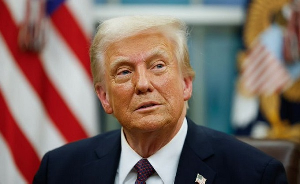Over 700,000 people die yearly from the consumption of fake drugs, a new report has uncovered. China and India are the two places in the world where most fake drugs originate from.
In effect, millions of people unknowingly consume cement, talcum powder, saw dust, paint and other toxic substances. The report, done by the International Policy network (IPN) and sponsored by 17 world-recognised organizations, including Ghana's foremost policy think-tank Imani Centre for Policy and Education says, nearly half the drugs sold in Ghana, Nigeria, Angola, Burundi and the Congo are fake and sub-standard.
These fake and counterfeit drugs get to Ghana easily after state security officials have been bribed by the importers.
“Worse, many countries have corrupt regulatory and legal systems that are easily exploited by criminal counterfeiters,” the reports states. The IPN report says that most of these fake drugs are deliberately mislabelled and shipped to less developed countries such as Ghana. Interestingly, only one percent of fake drugs are found in the developed countries.
The report attributes that development to the high literacy rate and the resolve of Governments of developed countries to see to the manufacture, distribution and marketing of high quality drugs.
India, from where 75 per cent of counterfeit drugs are being imported into Sub-Saharan Africa, close to 22,000 small drug producers were found by researchers to be operating from there.
Additionally, anectodal evidence gathered by the report suggests that fake drugs produced in China are prevalent both domestically and internationally.
In May 2008, six out of seven people injected with immunoglobulin in Jiangxi Province died.
A subsequent examination by the authorities found irregularities in samples of the drug.
The report predicts that the surge in the sale of counterfeit drugs will make the players accrue a profit of US$75 billion by 2010. Ghana currently does not have any effective mechanism for discovering and disclosing fake drugs.
Medical experts say that the consumption of fake drugs results in unnecessary deaths.
The phenomenon is also said to be increasing the levels of drug resistance where the real drug becomes less effective at treating diseases.
With regards to African governments' efforts to deal with the problem, the report states that current legal regimes and criminal penalties do not address it.
It stresses t he need for effective mechanisms to enable buyers of drugs to be assured that what they are buying is the real thing. “Identity preservation systems using unique codes verifiable through a simple text message such as developed by www.Mpedigree.net, which partners IMANI are one possible solution. More effective trademark systems would also help,” concludes the IPN report.
General News of Wednesday, 27 May 2009
Source: By Livingstone Pay Charlie












